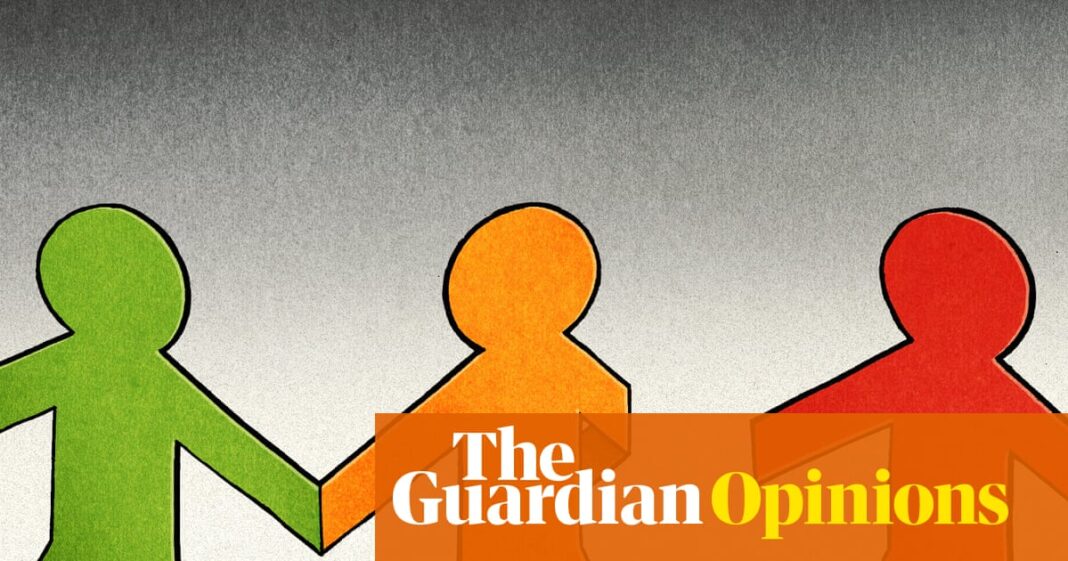Imagine you are given a pile of tokens, representing real money, and invited to donate to a common pot. There are other players but you can’t interact with them. The sum of collective contributions will be trebled, then shared equally among all players. What do you do?
If everyone submits all their money, all get richer. But if everyone except you pays in, you can enjoy the collective payout while retaining your original stash. The flaw in the selfish strategy is that other people might have the same idea. If no one pays in, there is no bounty to share.
This is the public goods game, an experiment that economists and psychologists use, with many rule variations, to test conditions under which people pool or hog resources.
It is a simple but useful tool for unravelling some of the mess in British politics. For example, it illuminates a link between two stories that do not, on the face of it, seem connected – the scandal of prisoners accidentally released from jail and a crisis in the BBC over alleged institutional bias. Both are case studies in the problem of coordinating public goods in a climate of mistrust.
The key is collective identity. A routine finding in the game is that participants’ willingness to share goes up when they feel part of a group. It doesn’t have to be a deep connection. Picking sides with a coin toss is sufficient to make team heads and team tails display heightened solidarity within their tribes.
The political implications are obvious. Taxpayers are happier to make higher contributions if they see the benefit to themselves or people like them. If they think the money goes to undeserving people – outsiders, cheats – they resent paying.
Convicted criminals are low on most people’s list of worthy beneficiaries. Politicians have little interest in making the case that more should be spent on jails. The public goods argument would be that a well-resourced criminal justice system keeps law-abiding citizens safe by reducing reoffending rates. But the easier way to satisfy voters’ craving for security is to pledge ever harsher punishments.
For years, those incentives combined to drive up mandatory prison sentences without suitable increases in the justice department budget. The consequence is an overwhelmed prison system that uses early release as a pressure valve to free up cell space and is so disorganised that the wrong criminals are sometimes discharged.
A couple of high-profile cases have exposed David Lammy to fierce political pressure, but he is just the unlucky minister at the wheel as the system runs out of road.
The justice department was a net beneficiary in Rachel Reeves’s spending review earlier this year and more prisons are due to be built. But it will take time for those investments to reach fruition. Meanwhile, there are plenty of rival demands on the exchequer.
The economy is not growing fast enough and voter expectations of service quality exceed the state’s capabilities. The chancellor is asking people to pay more – having already raised taxes and point-blank promised she wouldn’t do it again – before the government has delivered a dividend in public goods.
A popular party with charismatic leadership would find that hard to sell. For Keir Starmer’s Labour, which enjoys neither of those advantages, it threatens to escalate into a crisis of legitimation. Survival is not just a matter of pulling the right revenue-raising levers. It means winning an argument about the function of taxes, defining the group that stands to benefit from pooled resources as broadly as possible.
The system has to be seen as a collective investment for mutual advantage, not expropriation and transfer to strangers. That in turn presumes there is a critical mass of people who self-identify as a single political community. They don’t need to agree on everything, but they should accept that disagreement is part of a negotiation about the best way to achieve common goals.
Politics is not a winner-takes-all fight to the death. There should be widely recognised cultural references that nurture a sense of belonging together. People who see problems from rival perspectives should still sound as if they are describing the same reality.
This is where the BBC comes in. Britain’s national broadcaster is unusually well respected as a venerable institution and a provider of reliable news. That reputation has made it an effective force countering fragmentation and radicalisation in the information space. Without it, UK politics would go (further) down the US path of extreme polarisation, tending towards civil unrest.
after newsletter promotion
That is why the story of shoddy editorial practices described in a leaked internal memo, leading to the resignation of senior executives, is doubly grim. It is inherently bad that editorial standards went awry – far awry in the case of Panorama’s slyly edited video of a Donald Trump speech to an insurrectionary mob. And it is disastrous that such failures empower Trump and his legion of fellow-travellers in British politics and media to portray the BBC as irredeemably corrupt.
The frenzy is out of proportion to the offence, but consistent with a longstanding vendetta. The BBC is a target for rival news organisations that resent its unique status and privileged funding. It is also ideologically threatening to the radical right because the licence-fee model is an exemplar of a mutually funded public good. The corporation doesn’t have to exhibit liberal-left bias to provoke its enemies. They already see it as a factory shipping cultural collectivism and resent the purchase it has on the nation’s affections.
A bleak irony is that the aspiration to avoid political partisanship, imperfectly realised but sincere, is a vulnerability for the BBC’s assailants to exploit. Their goal is not to enforce accuracy but to maximise disorientation, uncertainty and suspicion. The BBC’s ambition to high standards compels it to self-flagellate when exposed in a misdemeanour, while those who demand ever more extreme penalties feel no equivalent duty to fairness or balance.
Every day that a most trusted news source is forced to report on its own supposed untrustworthiness helps corrode the institutional foundations upholding British liberal democracy. It gives succour to the claim that everything is broken, no established authority should be believed, and the only remedy is to burn everything.
And so politics stays trapped in the doom loop: distrusted governments are afraid to take unpopular but necessary decisions; hard problems are deferred; things do not get better; governments become less popular and their room for manoeuvre is even more constrained. Each cycle stokes the appetite for demagogic simplism – the Trumpian model of holding the system itself responsible for failure and insisting that salvation requires breaking all the rules.
The public goods experiment gives some indication of how that might work out. The most selfish and ultimately self-defeating behaviour – the refusal of rational incentives to cooperate – is observed in players who express contempt for the game itself.


